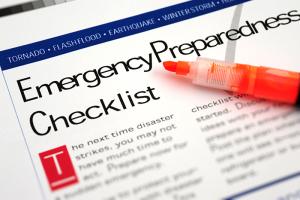ASHE, Powered for Patients partner on DHS project
ASHE, Powered for Patients partner on DHS project
The American Society for Health Care Engineering (ASHE) is partnering with Powered for Patients on a Department of Homeland Security-funded project to leverage fault-detection and automated-reporting technologies to provide real-time alerts to government officials and utilities anytime emergency power in a hospital is threatened during a disaster. ASHE is seeking members who are currently using fault-detection and automated-reporting technology for their emergency power systems to actively engage in the initiative. The project will test the real-time data sharing process of facilities during the second quarter of 2019.
EPA releases new hazardous waste rule
The Environmental Protection Agency (EPA) Acting Administrator signed the final rule “Management Standards for Hazardous Waste Pharmaceuticals and Amendment to the P075 Listing for Nicotine” on Dec. 11. This establishes cost-saving, streamlined standards for handling hazardous waste pharmaceuticals to better fit the operations of the health care sector while maintaining protection of human health and the environment, according to the EPA. The final rule aims to reduce the amount of hazardous waste pharmaceuticals entering waterways by 1,644 to 2,300 tons on an annual basis, the agency stated.
New AHRQ report says HACs have decreased
Hospital-acquired conditions (HACs) declined by 13 percent between 2014 and 2017, preventing an estimated 20,500 deaths and $7.7 billion in health care costs, according to preliminary data from the Agency for Healthcare Research and Quality. HACs decreased by an estimated 910,000 over the period, including a 37 percent decline in Clostridium difficile infections.
Guide promotes cyber-secure medical devices
The Healthcare and Public Health Sector Coordinating Council (HSCC) recently released a consensus-based guide to developing, deploying and supporting cyber-secure medical devices and health information technology across the product life cycle and improving information sharing between manufacturers and health care organizations. HSCC developed the Medical Device and Health IT Joint Security Plan in response to 2017 recommendations by the Health Care Industry Cybersecurity Task Force.




